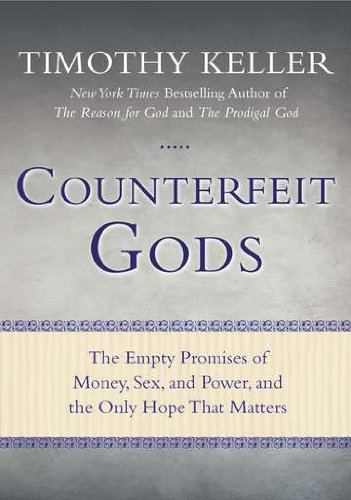A Brief Book Summary from Books At a Glance
About the Author
Timothy Keller is the pastor of the Redeemer Presbyterian Church in Manhattan. He is the author of numerous books and is a popular speaker and Christian leader.
Introduction
In this book Timothy Keller exposes the idols that permeate human hearts and cultures. He identifies the nature of idolatry and examines specific idols that rule over individual people and nations. Keller’s analysis is biblically and theologically grounded, and he shows how to break the power of idolatry through worshiping and loving Jesus Christ. Since Christians continue to struggle with the idols that their hearts cherish, Keller provides tools for examining our hearts so we can discover where idols still have a foothold in our lives. This book provides clear insight into the theory and practice of contemporary idolatry, as well as providing biblical help and hope in the gospel.
Table of Contents
Introduction: The Idol Factory
Chapter 1 All You’ve Ever Wanted
Chapter 2 Love is Not All You Need
Chapter 3 Money Changes Everything
Chapter 4 The Seduction of Success
Chapter 5 The Power and the Glory
Chapter 6 The Hidden Idols in Our Lives
Chapter 7 The End of Counterfeit Gods
Epilogue: Finding and Replacing Your Idols
Summary
Chapter 1
All You’ve Ever Wanted
Sometimes the worst thing that can happen to a person is for them to get what their heart desires. In Romans 1, God punishes people by giving them over to their desires. The reason this is a punishment is that our hearts manufacture and desire idols — the heart of sin is rejecting God and desiring other things in his place. In the Old Testament, God called Abram to follow him, and God gave him incredible promises of blessings. God also gave him a son, Isaac. For years Abram had not been a father, and his deepest longing was to have a male heir. God miraculously gave him one, and Abraham then had his heart’s desire. Then, however, God called him to sacrifice his son. Abraham knew that God was both holy and loving: God could demand Isaac’s life because of the debt of sin that everyone owed him, but God was also loving and had promised to bless the world through Abraham’s son. Abraham did not know what God was going to do, but he did trust that God would work it out. In the end, God provided a substitute ram for the sacrifice.
If Abraham had not been willing to lay Isaac on the altar, his desire for his son and his son’s future would have grown inordinate. Today there are parents who micromanage their children’s lives and who claim that their children are everything to them. This type of idolatry is really selfishness: it is trying to find fulfillment in the success of your children. It also ensures that your children will disappoint your idolatrous expectations and leave you hurt or angry. Our security can only come from God. If we want to know the extent of his love, we need to see that God the Father also went up on a mount to sacrifice his Son, but this time there was no intervention. God’s Son died to pay our debt of sin and to reconcile us to God. When we experience the love of God we are empowered to give up everything else.
The remainder of this article is premium content. Become a member to continue reading.
Already have an account? Sign In
